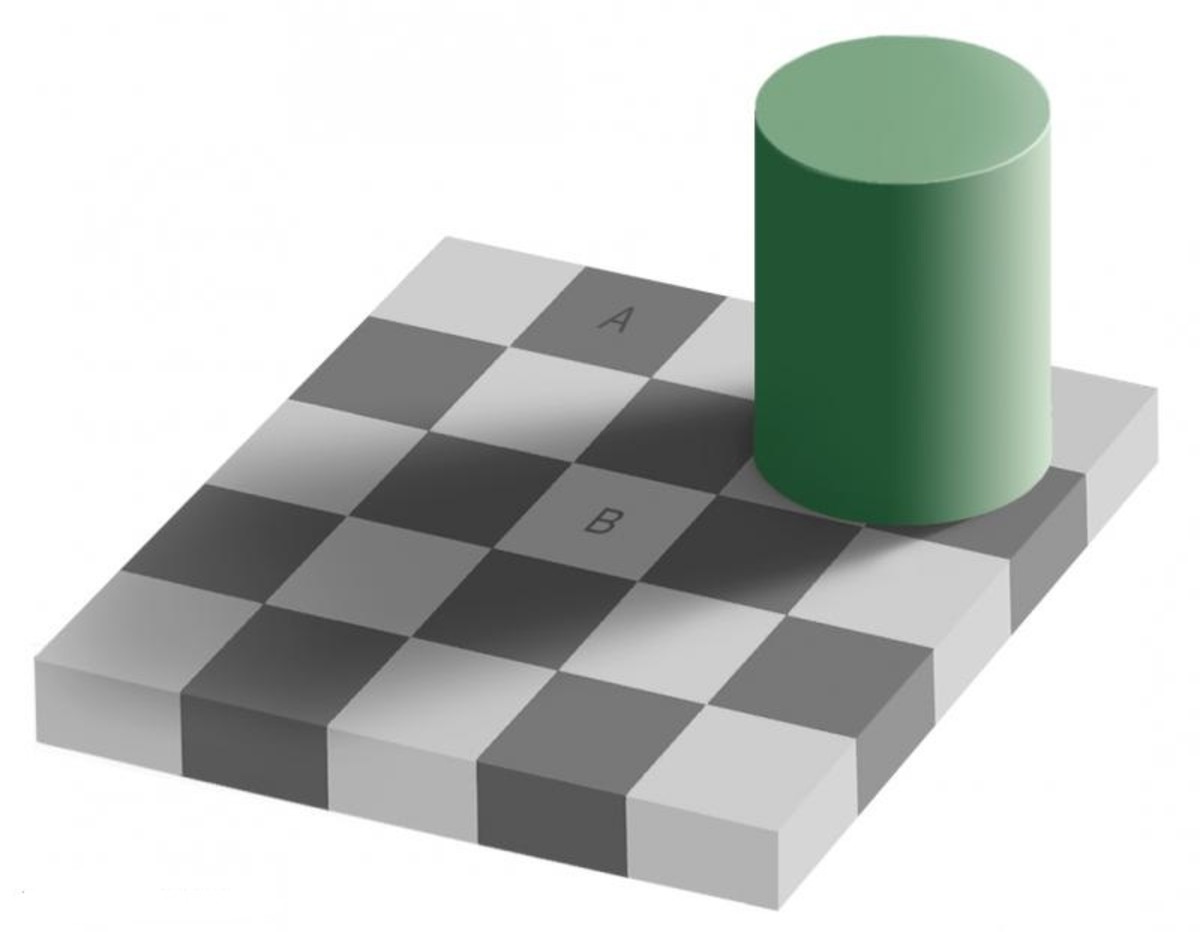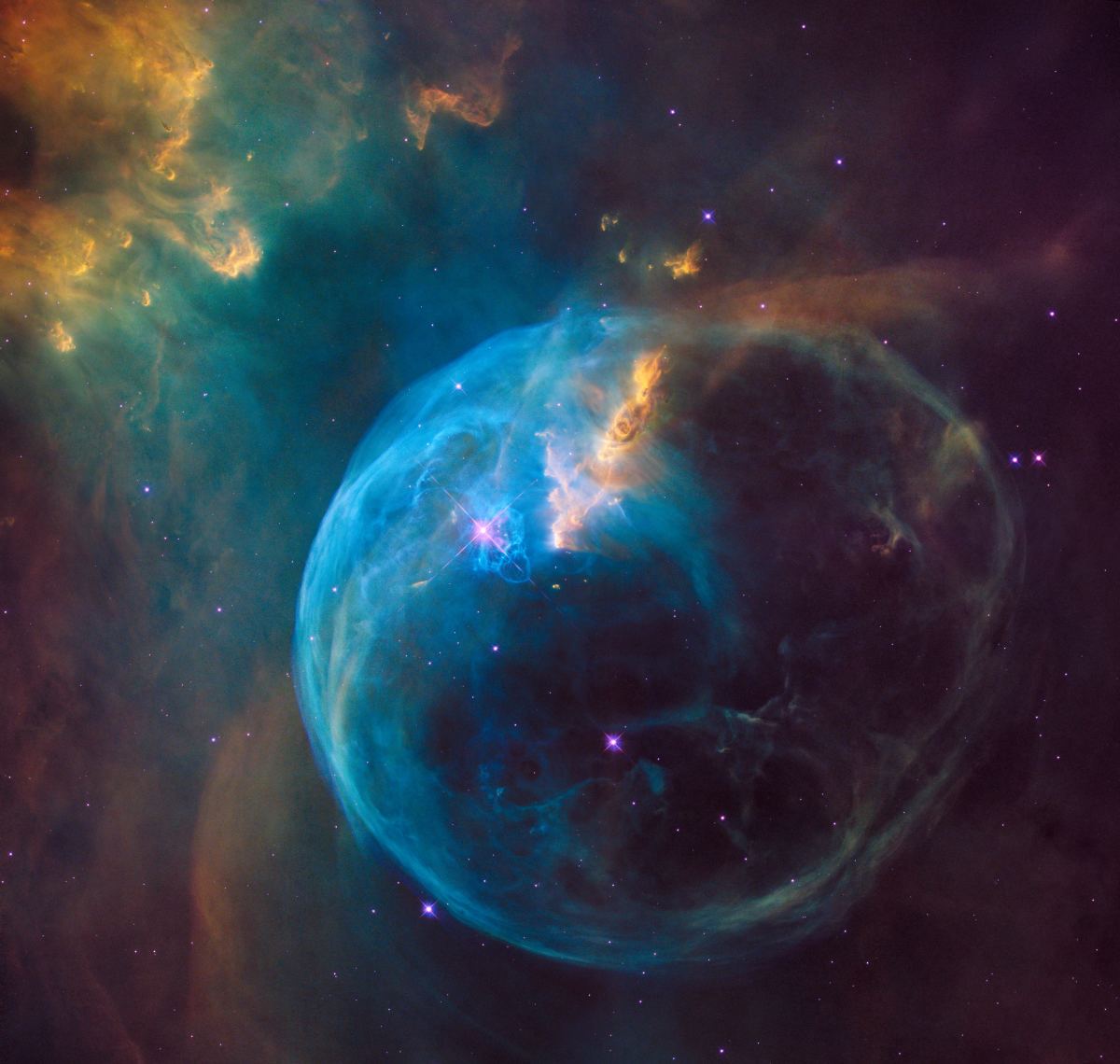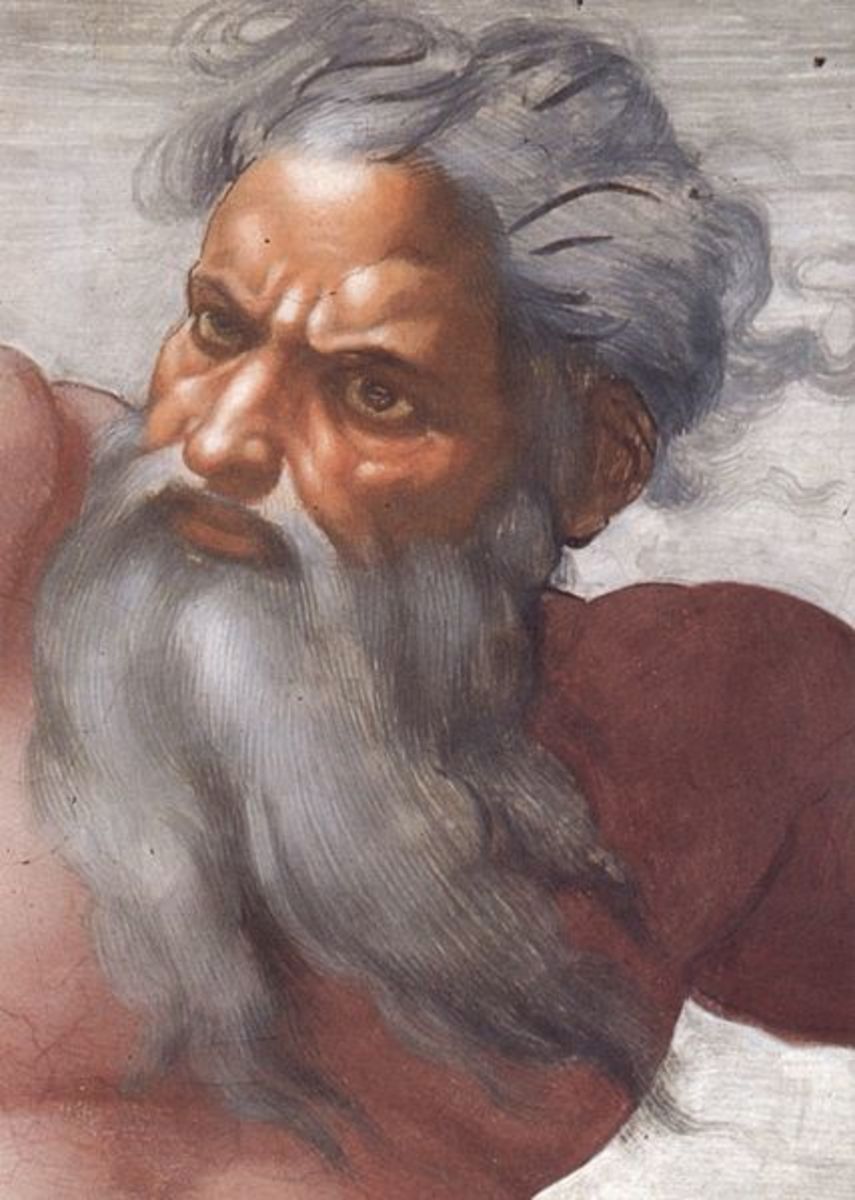God, Ghosts and Guesswork
The Question of Belief

Religion and Belief
There are many successful religions in this world and, though atheism and agnosticism appear to be on the increase, there are many thousands of believers, belonging to one or other of the world faiths ~ or perhaps to smaller movements.
God and religion appear to go hand-in-hand. However, there is no real need to attach oneself to any organised religion, simply because one believes in God.
Humans are sociable creatures, and often 'spiritual', too. They are drawn to wonderful music and exquisite art. They are made happy by special moments of beauty and emotion. They feel love. They feel ecstasy. They seem to need ritual. New life feels like a miracle and brings overwhelming joy.
Religions are societies, of sorts, and they certainly offer rites and rituals. They can offer love, ecstasy, miracles and joy. They fill a need ~ especially in those who feel alone or lost in the world.
Religions have existed for hundreds of years and, for whatever reason, humans seem to be automatically disposed to belong to one or other of them.
There is even evidence of a spiritual side to Neanderthal people. The remains of flowers have been found in a grave. Burial and flowers indicate ritual and, perhaps, even a belief in an afterlife.
In some societies, religious freedom is considered more acceptable than in others.
Organised religion has become a major part of society, over so many years that some people barely consider whether it reflects truth, or not. Belief is embedded in many people, from the cradle, and reinforced by preachers and teachers over the years.
We seem to be wired to believe.
*
'Did Neanderthals Believe in an Afterlife?'
http://news.discovery.com/history/neanderthal-burial-ground-afterlife-110420.html
'Neandertals had funeral ceremonies, burying their dead with flowers'
http://en.wikipedia.org/wiki/Shanidar_1
Shanidar Cave - The First Signs of Human (Neanderthal) Spiritual Ritual?
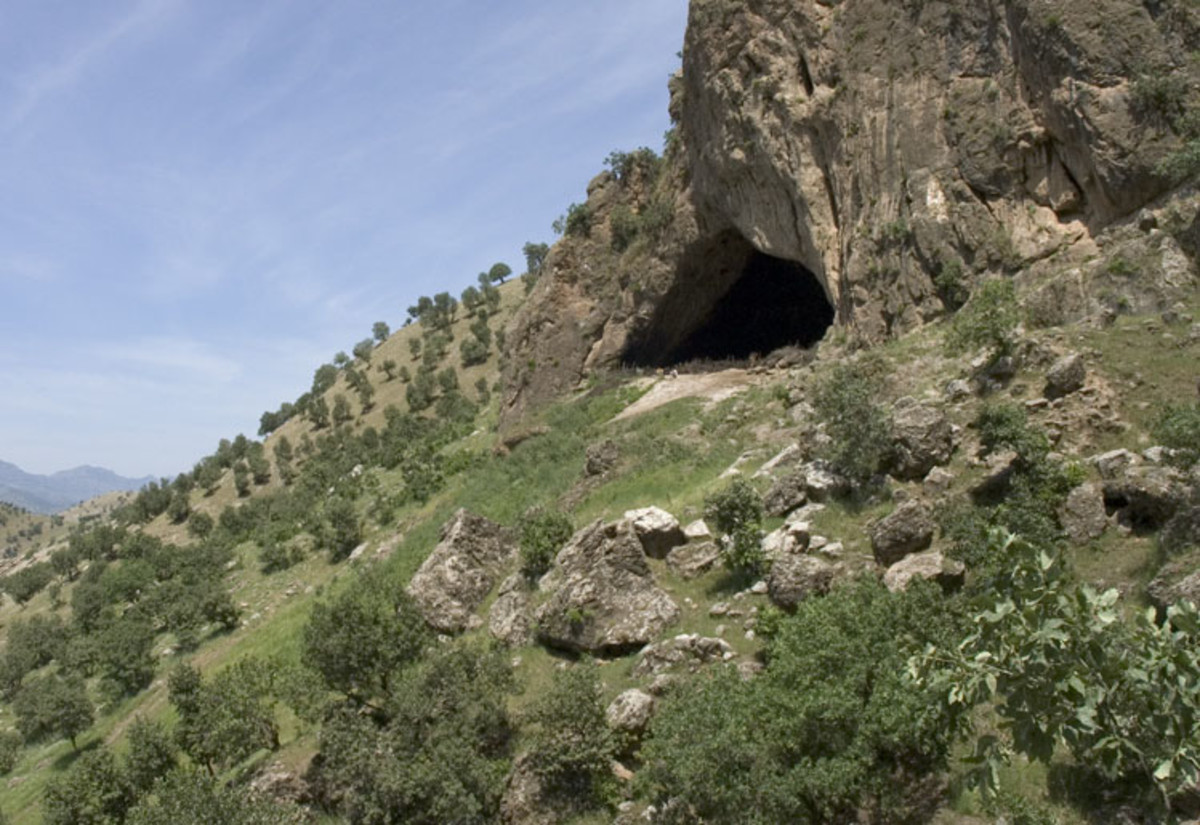
Personal Ideas and Copyright
Personally, I am not impressed by much that I see of organised religion and, as an agnostic, I am not certain of the existence of God.
However, I believe that, provided no-one is hurt in the process, people should be free to believe as they wish and to belong to any religion they wish. People should also be free not to believe.
I respect the rights of believers to believe.
I also think that those, who don't do so, already, should give serious consideration to the reasons why they believe ~ and why they believe as they do. For example, why do Christians believe in God / Jesus, as opposed to Odin and Thor?
Having thought much about this subject, it seems fairly clear to me why we have developed like this. Maybe others have suggested similar ideas? That is possible.
You may or may not approve of my theory, but I hope that you will find it thought-provoking.
Please note that these musings are not intended to upset anyone!
As I said, provided that they cause no-one any harm, I respect everyone's right to their own choice of beliefs, or lack thereof.
This article simply sets out my thoughts on this ~ admittedly emotive ~ topic.
I hope that I have been able to express my ideas clearly enough.
I am currently agnostic. I don't know. I have an open mind about most things, but I admit that I see no real reason to accept Bible stories as truth, any more willingly than I would accept Greek, Roman, Egyptian, or any other, mythology.
In my childhood and early teens, I considered myself to be a Christian. I have thought about religion, the soul, the supernatural, etc, etc, since I was a young child, and, by the time that I had reached twelve years of age, the doubts and questions were starting to arrive, thick and fast.
*
Article Copyright Tricia Mason.
All Rights Reserved.
Mysteries
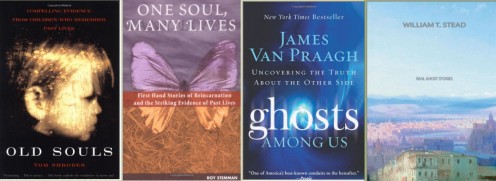
Thunder, Lightning and the Mysterious Unknown
In times gone by, people were ignorant of the science behind rainbows; thunder and lightning; volcanoes and earthquakes. Sometimes these unexplained happenings could be terrifying. Why did they occur?
For cultures, who believed in gods, it must have seemed quite clear that it was the gods who were behind it all ~ eclipses, meteor showers, tsunamis; all the terrifying and unexplained aspects of life and nature.
How could the strange events of our dreams be explained?
Why did some people seem to have been re-incarnated?
Where did babies come from? Why were some women fertile while others were barren?
What, exactly, was death? Where did a person's essence go to when he died?
The gods must have been in control of all of it!
Indeed, where did we come from and why were we here? ~ Again, the answer had to be the gods.
How did the gods do it all?
Human imagination can fill in the gaps in all of the stories.
Thor made thunder with his hammer.
Yahweh made people out of clay ~ and then he breathed life into them.
Where, exactly, were these gods?
Did they live in caves? Or on mountains?
Were they up in the sky?
Could the stars and planets be gods and goddesses?
Solar Eclipse
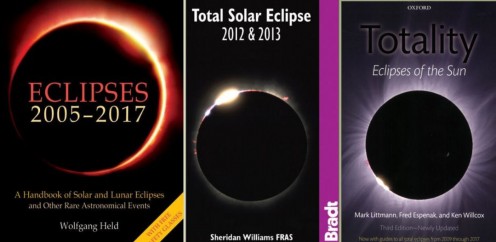
Today, We Understand Solar Eclipses
God in the Gaps
As time passed by, mankind became less ignorant and more knowledgeable.
Science began to explain some of life's mysteries.
It could explain rainbows, thunder and lightning, volcanoes, earthquakes and tsunamies, eclipses and meteor showers, and where babies came from.
It could even explain the evolution of life.
But it could not explain the origins of life. It still cannot. Not yet.
This gap in man's knowledge was ~ is ~ yet to be filled.
Scientists are toiling to discover the answer.
Believers are not. They are sure that they already have the answers.
As in the past, they are content to let God fill the gaps.
Life began with God. God was the original life form, and he created all life on Earth ~ including mankind (in his own image, according to the Bible).
Ancient tribes, who were far more ignorant than we are, had many gaps. God filled them all.
Nowadays, though there are fewer gaps, some people still hang on to the old ideas.
In effect, they will not allow the various sciences to do their job.
Geology and evolutionary science are rejected by some, who prefer to cling to the 'God is responsible for it all' and 'it only happened relatively recently' trains of thought.
God still fills a lot of their gaps ~ even though some of the gaps are no longer really there to be filled.
However, there is still that one important gap ~ where did life come from?
How did it begin?
We are not sure ~ not yet.
Logic should tell us that, since many of the unexplained mysteries of the past have now been explained, quite rationally, without further reference to superstition, then the mysteries that still exist should someday be explained rationally, too.
So, for some, mysteries have logical solutions that we simply have not yet discovered.
While, for others, the only answer is God.
And, of course, we may eventually discover that God will fit into a rational explanation for the world. We don't have all of the answers, yet, so we cannot know for sure.
Lightning
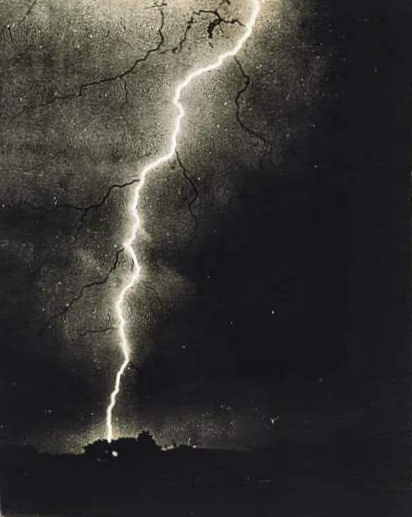
Children and their 'Imaginary Friends' - Ghosts, Mysterious Voices, and Other Planes
Why do cultures point to God, as their answer to life's mysteries?
Two reasons:
~ Mysteries exist
~ People may have experienced something supernatural and, apparently, 'godly'.
We have already looked at some of the mysteries ~ now let us move on to the mysterious and godly.
Many children see people who, apparently, are not there.
I have heard of numerous examples of young children, who see, and even interact with, their deceased grandparents. I have also heard of those with 'imaginary friends'; friends, who don't seem so much imaginary, as invisible. One such 'individual' told her friend about how she had died ~ by drowning!
Have you seen a ghost? ~ Many people have.
Or they have heard voices.
What is the explanation for these strange experiences? Are they products of our own imaginations; or electro-magnetic phenomena; or the essences of real people, whose bodies have long gone?
We may not have explanations for, or answers to, these phenomena ~ and many may not even believe in them. However, believe in them, or not; rational explanation, or not ~ the phenomena exist ~ somehow.
Can mediums contact the dead? ~ Whether they can or not, I do not know ~ but some do appear to be able to.
What about miraculous recoveries? ~ They seem to happen, too.
And prophetic dreams. People claim to have them.
The truth is that many 'supernatural' occurrances seem to go on around us.
Are they real? ~ Who knows? I don't ~ and I am not convinced that anyone does.
But while these mysteries exist, it is as well to acknowledge that we do not have all of the answers and that they still lead people to believe in the supernatural.
Indeed, while these mysteries do exist, they allow for belief in some form of life on another plane ~ the plane, which the mediums seem to plug into, where the voices, ghosts and imaginary friends seem to live.
This is the plane that Christians and other Believers call Heaven or Paradise. Valhalla (Norse mythology) is another such name. Nirvana is also related.
Is there is a special place, where dead loved-ones live happily?
Does 'Heaven' exist?
If it does, then this mysterious plane must also be the home of the miraculous deities, who control thunder, rainbows, life and death.
That would explain everything.
Imaginary Friends
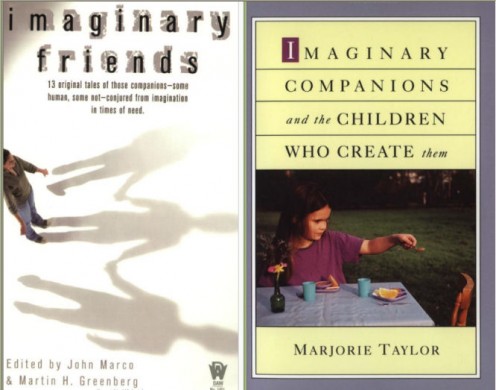
Amazing Imagination
Returning to children. They do seem to be blessed with an extraordinary gift, when it comes to the imagination. They love make-believe lands.
Do we cease to believe in 'Wonderland', when we become adults? - Is Heaven a 'Wonderland'? Is 'Eden'? We Love 'Narnia' and 'Middle Earth'. Are they versions of Heaven? Or is Heaven one of our make-believe lands?
The ability to imagine, and to believe in the products of that imagination, must surely be another reason for man's willingness, and ability, to believe in God?
Should we grow out of God, though, as we grow out of 'Santa Claus' and 'The Tooth Fairy'?
Make-Believe? - We Can Believe in the Unbelievable
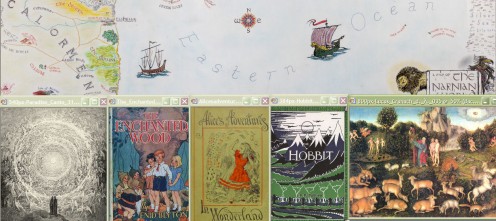
Many Have - Apparently - Seen Apparitions of 'The Virgin Mary'

Marian Apparitions and Near Death Experiences
Visions and Apparitions; Near Death Experiences and Astral Travel
Another reason why people may believe in God and ~ depending upon their religions ~ in saints, angels, etc, etc, is that some are convinced that they have seen, or heard, God, or God's messengers.
What could be the explanation for this?
It could be that they have experienced a religious wonder.
It could be that, like others, they have experienced apparent 'ghosts'' and / or incorporeal voices.
It could be that they are in a state of trance or hysteria.
It could be that they are in altered states, owing to drugs or poisons in their bodies ~ possibly caused by ingesting ergot of rye, for example.
It is difficult to explain this phenomenon. Some people may be easily led; some may be liars; some may be deluded ~ some may be telling the truth.
It matters not, whether the apparitions were actually 'real'. If they felt real, and if the people believed that they had experienced them, then, for them, they were, indeed, real ~ and they will have had a huge effect on their lives, and on their belief patterns.
Experiences, like these, will, of course, cause many people to believe in a supernatural realm.
One wonders whether UFO sightings, and the like, should be classed with these 'visions'.
It is likely that some experiences of apparent demons probably belong here.
I have written a number of hubs on Marian, and other 'saintly', visions, which occurred in Medieval / Renaissance 'Spain'.
'Near Death Experiences', and the 'Astral Travel' which often accompanies this phenomenon, are very intriguing, and usually have a huge effect on the persons who have experienced them. This sort of thing may also affect religious beliefs.
Scientists have given explanations ~ but are they satisfactory? Certainly, many see these phenomena as evidence ~ if not proof ~ of an afterlife; even of Heaven ~ even of God.
No doubt these strange personal experiences have been going on for thousands of years ~ back into the mists of time.
Meetings With Mary

Agnostics Don't Know
Yes God and Heaven explain everything ~ provided one does not ask too many questions.
Does God really control thunder and lightning?
Did he ever?
It once seemed that he did, because mankind knew no different ~ no better.
But now we do know better.
We know that mysteries existed then, which are mysteries no more.
We should gather from this, that the mysteries which still exist may also be explained, in due course, without resorting to 'God'.
God fills the gaps in our knowledge.
Without the gaps, we could find that there is no need ~ no place ~ for God.
The question is, though, does God exist, independent of our need for something to fill the mysterious gaps?
Is God 'there'?
I don't know!
Being 'agnostic' (agnostos is from the Greek) means being in a state of not knowing.
Does anyone really know ~ for certain?
Would we come up with the idea of God today, if these ideas was not already planted in our brains?
It is strange, is it not, that mysteries used to exist, where 'God' settled man's need for a solution ~ and now God, himself, has become the mystery?
We no longer wonder about thunder, rainbows and earthquakes ~ we wonder about God.
Agnostics do not know about God and the supernatural ~ and tend to think that it is impossible to know. Yet, ironically, most agnostics tend also to be seekers after knowledge and truth.
It is usually only by seeking and learning that we can discover new information and develop new ideas.
Scientific study enables us to learn more about our world and to understand it so much better than the people of the past did. Presumably, the people of the future will have more knowledge, and a better understanding, than we have.
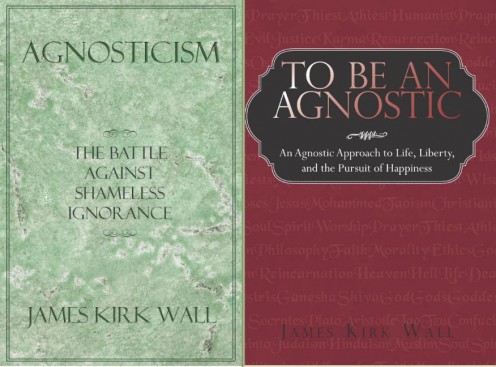
'Moses' - Christians Believe In Moses, God, Jesus, The Ten Commandments And all that the Bible has to Offer!
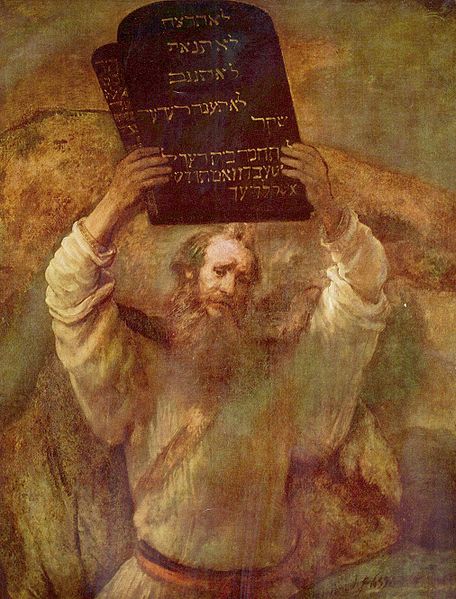
Cruel Acts Have Been Executed In The Name of Religion - Christianity Included: The Spanish Inquisition

Believers Think That they Know
The point is that, if someone, past or present, hears voices, or sees people, when no-one is there, then they are likely to believe in some kind of parallel universe. Once they believe in the parallel universe, they are 'prepared' to believe in God.
This would have happened, quite naturally, in the ancient past ~ and, gradually, shamans and priests, and society in general, would ensure that these beliefs became part and parcel of mankind's very make up.
The stories and ideas seemed to be true.
They helped people to understand their world.
People came to rely on the gods; to love, fear and respect them; because all that was good or bad or frightening was ultimately their decision.
The children were taught that this was the truth.
But this was still being taught as truth, even when its 'truth' became questionable ~ even after many of the mysteries had been cleared up.
Why is this?
Without the presence of these gods, mankind would be alone, in a huge and frightening universe. Some people felt, and still feel, that they could not cope with this.
And, anyway, believers 'know' that it really is true. God really is there. Some still believe that he deliberately uses floods, and other natural disasters, to punish the wicked ~ just as the Biblical flood supposedly punished the wicked of early times.
It is intriguing that God still exists in mens minds, even when we no longer need him to fill many gaps. (Or do we?)
May believers even be correct?
Believers think that God created us in his image, and that he is omnipotent and omnipresent, but it is far more likely that mankind created 'God' in our image, and that 'God' can do whatever we can do, or can imagine doing, or wish that we could do.
It seems that 'God' might once have been a convenient invention, but what if 'God' actually exists, and resides somewhere 'other'? This has to be a possible ~ but how, or why, or in what form, I don't know.
Believers think that they know. Many of them seem to think that they know a lot about God, how God feels, what God wants, etc, etc.
But they do not know. How can they?
One very devout Christian once said that, no matter how strongly she believed in God and Jesus ~ and she was certainly a convinced and passionate follower ~ she had to admit that, really, we are all agnostics. Some agnostics believe; some do not; some admit to just not knowing.
The Bible

Atheists Also Think That they Know
Interestingly, atheists are as certain about 'God' as are believers.
Believers 'know' that he definitely exists.
Atheists 'know' that he definitely does not exist.
Atheists seem to think that, because they can work out how and why 'gods' may / must have been invented, they also know that there is no real god.
But how can they really know ~ for certain?
After all, the pre-requisites for belief still exist.
People still see ghosts; still hear voices; still experience miracles, etc, etc.
Our brains still seem to be 'wired' for belief.
The strange experiences are what enabled man to conceive of another world ~ a world where God(s) lived ~ in the first place. And these phenomena still exist. They have not, yet, been fully explained.
Some may scoff and disbelieve, but something is happening ~ and it is happening to a lot of people.
Man may understand the science of vulcanology and geology and biology and even astro-physics, but he cannot explain ghosts, etc. He can attempt to explain them away ~ but he cannot actually explain them.
So, while there is the possibility that souls live on beyond death, we have to allow for other spirits living in their world ~ including, perhaps, the Holy Spirit.
Atheists may be correct ~ but, if so, there is still a lot to be explained.
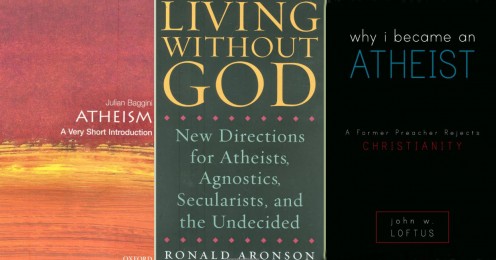
Derren Brown
Magicians and Atheists
Some famous atheists include Christopher Hitchens and Richard Dawkins, who are very intelligent, and whose ideas are fascinating to consider.
Their conclusions are very logical, but, to me, these men are unable to 'explain away' the mysteries that people experience, regularly ~ and which would come under the umbrella of 'the supernatural'.
Derren Brown is an amazing 'magician', 'illusionist' and more. He can work apparent miracles. He does not believe in the supernatural ~ not in mediums and not in God.
Since he is able to perform mind-blowing 'magic', Brown knows how miracles and mediums work ~ and he knows not to believe in them. When one watches him at work, one can see how anyone might be convinced that miracles are real; one can see how people's hearts and minds could be won over.
I have no doubt that talented artists in illusion, suggestion, etc ~ artists such as Derren Brown ~ could easily begin their own religion, if they so wished. They could claim to be prophets, spiritual mediums, etc, etc. They are incredibly convincing. Indeed, those who would have us believe that they can perform miracles may simply have received the same education as these artistes in 'magic'.
Certain religious beliefs may be based on this kind of 'magic'.
*
See videos
*
Read a review of Christopher Hitchens' book 'God is not Great: How Religion Poisons Everything' and Richard Dawkins' book: 'The God Delusion' ~ by Jeffrey Stueber
http://lutheranscience.org/2008-HitchensAndDawkins.html
Christianity and Other Religions Have Members Across the Globe
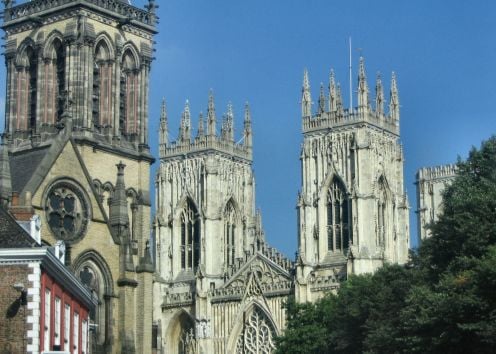
The Bible and Other Ancient Texts
We can surmise how and why mankind came to believe in gods.
We can guess that each tribe had their god, which evolved as time went by.
We know about Greek, Roman, Egyptian, Norse, Indian, etc, etc, mythologies. They tell of the gods of these cultures. The stories exist in ancient texts.
Judeo-Christian stories still exist in ancient texts, too, but for some reason, they are not classed as ancient mythologies; they are still accepted as truth, by millions, today.
The Bible is still considered holy. Many still believe that it contains the very word of God. Many believe that its content is completely true.
Why should that be?
Why should this set of ancient religious stories be considered any more true than any other religious stories?
Why not believe in Odin and Thor?
Or Zeus and Apollo?
It may be possible that there is a power, or force, or intelligence, behind the Universe, which we could call 'God'.
He may be responsible for some ~ or all ~ of life's mysteries, but why should he be as described in the Hebrew Scriptures / Old Testament?
What are the chances, really, that they got it right?
There is no real logical reason to believe that they did.
Egyptian Mythology
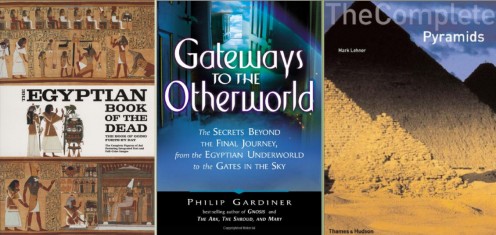
Egyptian Book of the Dead
More Questions Than Answers
Man has an enquiring mind.
Even the Bible refers to it, when saying that Adam and Eve ate of the fruit of the tree of knowledge.
People want to know. We have brains and minds. We think. We ask questions.
And, in our huge universe, every new answer is likely to bring a new question.
Every unanswered question is a mystery.
Every mystery is a gap where God might reside.
Life itself is a mystery.
*
How did life begin?
Does our essence simply die at death?
What was at the beginning of the Universe?
What is at the end of the Universe?
Is it possible to imagine infinity?
What could be at the end of infinity?
Is it possible to imagine nothingness?
If the Universe wasn't here, could 'nothing' be here?
Is God Only In The Gaps? - Sistine Chapel - Michelangelo
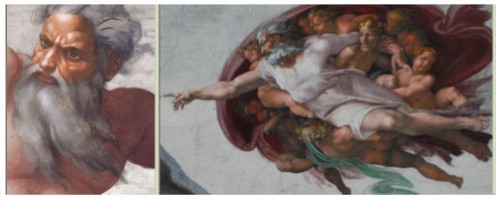
Science Pointing to 'God'?
While we question, our experts can only provide us with so many answers.
Our universe seems to be so miraculous, and our earth so finely tuned for us, that, for many, this is proof that God is there, and that he made our world especially for us.
Thus, the old mysteries and questions ~ the ones that could be explained quite simply ~ are being replaced by more sophisticated ones.
Many Believers think that the fact that our world fits mankind so well, points to a God, who designed it all.
There is some logic to this. Just a few changes and we could not exist.
However, just a few changes and something else could exist instead.
We evolved to suit our environment ~ self-evidently, that is why we suit it.
Evolution is logical.
A suitable world does not indicate a designer; it indicates survival of the most suited ~ or the most fitting; ie. 'the fittest'.
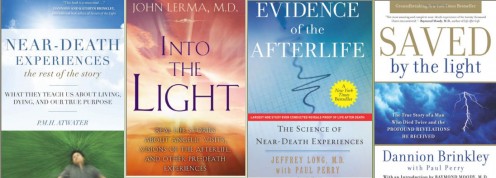
Venus von Willendorf - An Early religious 'Icon'.
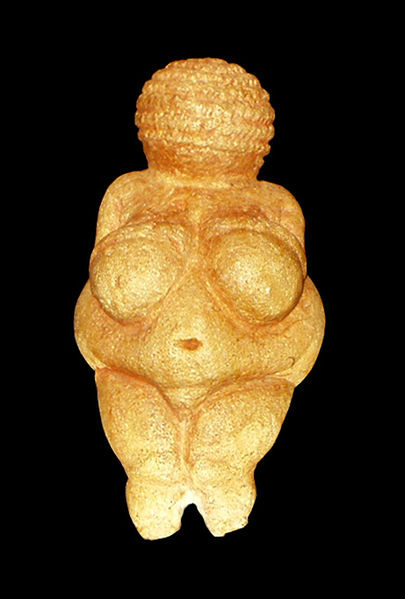
Ghouls and Ghosts, God and Guesswork
Imagine that you are walking through a forest, or across a desert, in ancient times. It is beginning to get dark. You can hear the wild animals. You live alongside them. Maybe an eclipse causes complete blackness. Life is mysterious and frightening.
What if you saw a ghost or heard voices ~ or just thought that you did ~ as many people do today. You would be terrified ~ and you might assume that other people existed somewhere near, but far ~ somewhere mysterious and unknown.
If a child is afraid, then it turns to its parents. If something is terrorising a tribe, then the menfolk, under the tribal chief's leadership, will attempt to protect the others. If they are all afraid of the mysterious unknown ~ supernatural or otherwise ~ then they will need a 'super leader'; a 'super-parent'; a 'supernatural friend', to guard and protect them against unknown forces. They will evolve a need for an all-knowing, all-seeing, all-powerful, ever-loyal, leader / father / God.
If your tribal leaders then told you that there was indeed a spiritual leader, living on another plane, both helping and punishing your people, as necessary, then you would probably believe it.
Of course, children often look first to their mothers ~ and it would appear that very early people often revered female 'icons', rather than male ones. However, male social dominance would ensure that the ultimate God would eventually become male.
This sort of thing must have been happening within various tribes, in various places, at various times.
The result was a number of similar, but not identical, religions ~ mostly believing in a sky god; a type of father figure.
Belief derived from what was, in effect, guesswork.
And, where belief still exists, it is still the result of a combination of factors: real mysteries, supernatural mysteries and guesswork.
We still do not fully understand the origins of life.
People still see ghosts and feel that their homes are haunted.
Many Believers still conclude ~ or guess ~ that God must be responsible for the world being so perfect ~ often because they have not fully studied or understood the science and the evidence.
Of course, many intelligent and educated Believers still believe, despite having studied the evidence. This may be because it just feels right and makes sense to them. But they cannot possibly 'know' for sure ~ even if they 'feel' that they know. It is still glorified guesswork.
Maybe God(s) Dwelled By Sacred Springs?

Do Gods and Angels Inhabit The Skies? - Past Believers Thought So!
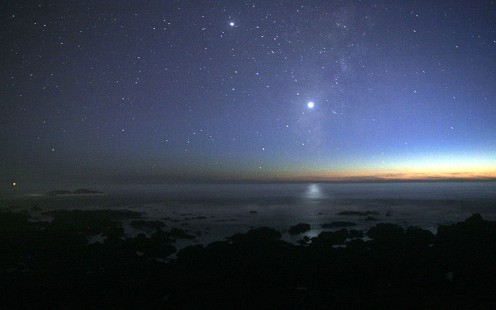
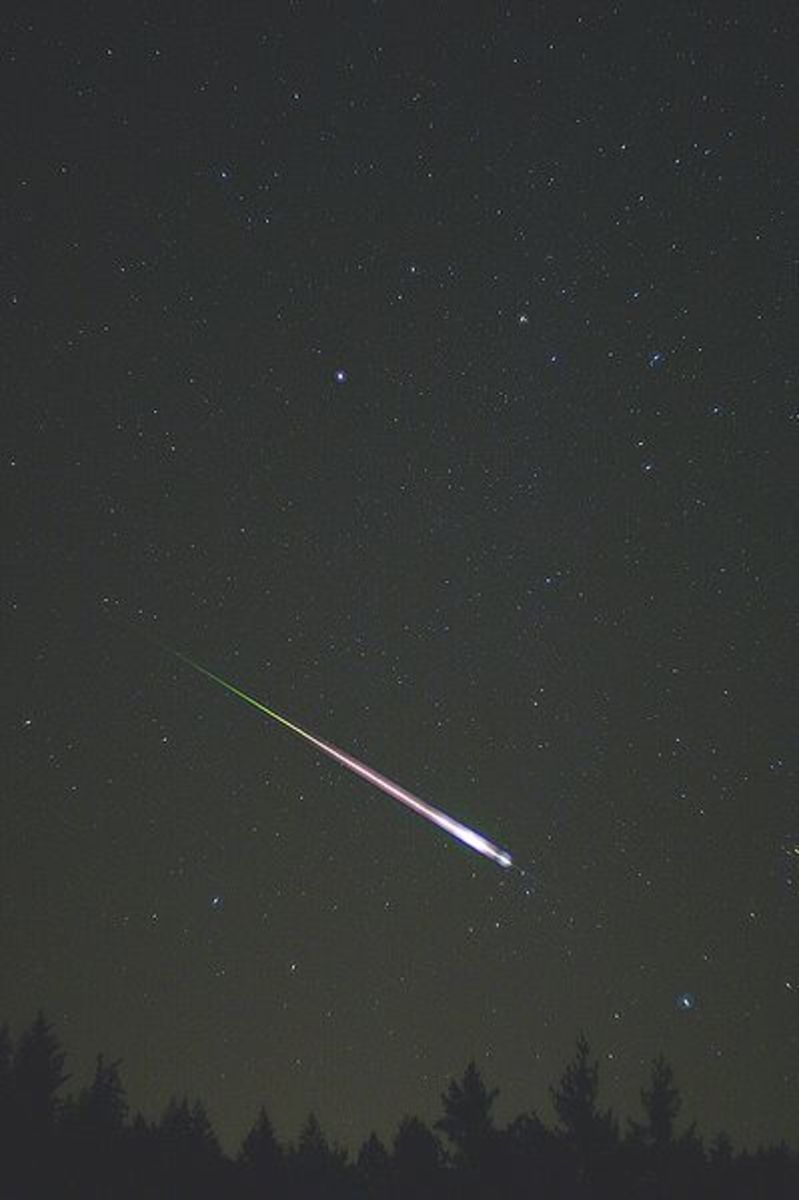

A Theory of God, Heaven and Hell
God may or may not exist. I do not know. I am agnostic.
For any 'being', worthy of being called a god, to exist, he or she would have to be way beyond anything of which our brains could possibly conceive. God should be beyond our understanding. God should not be petty. God should be magestic in all ways ~ omnipotent; omnipresent; omniscient; eternal; unchanging.
And maybe 'he' is.
Or maybe 'he' isn't.
But why, or how, would anyone believe that God existed in the first place?
Perhaps they might see or hear him ...
But we don't see him, today, so why would ancient people be able to see God?
Some people still claim to hear God, but it is never conclusive.
*
I believe that ancient people believed in God for the reasons that I have already mentioned.
Then, as now, they had 'spooky' experiences, which led them to believe in other realms, or planes, where 'ghosts', etc. might live.
Then, as now, they probably wondered about ~ and possibly feared ~ death. It must have felt as though life's essence / energy should live on ~ especially since some people had seen ghosts and others had heard voices. If they could believe that their loved-ones were residing in a parallel universe, where they would, one day, meet up again, then they would feel more contented ~ and safer.
Many cultures have believed in the place where the dead reside. (There would need to be another place for the bad people, though ~ ie. for their enemies.)
Scientific knowledge of 'Nature' was very much in its infancy ~ they needed explanations. Maybe a superior being resided on that parallel plane, and he was responsible for all of the mysteries ~ the eclipses and thunderbolts, etc.
Maybe the 'superior being' was also looking after their deceased loved-ones. Maybe he would look out for them, if they asked him to ~ ie if they prayed. He could help and support
If the tradition continued and the shamans / priests and leaders took it on board, then the 'beliefs' would become 'truths'; they would become part of the culture; they would be passed on from generation to generation. The stories and beliefs would, eventually, be recorded in sacred texts.


A belief in God, Heaven, Hell, etc, would have been born out of needs, wants, ignorance and superstition.
That is where the belief may have come from.
It does not say whether God exists or not.
It does not explain all the mysteries, which resulted in the beliefs.
We do not know where 'ghosts' come from.
We do not know whether or not we might live on after death.
We do not know if other planes exist.
We do not know whether life, the universe and everything began with something, or someone, whom we might term 'God'.
There is much that we humans do not yet know.
And there is much that we do know.
Don't dismiss the knowledge that we have.
Don't assume that we have all of the answers.
And don't dismiss the possibilities.
God may or may not exist ~ but, even if he doesn't, man would have invented him ~ created him in his own image.
God and Adam - Michelangelo
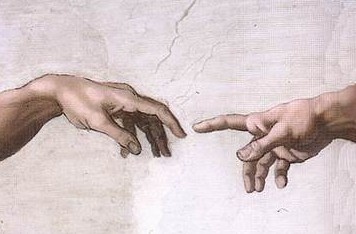
Is God There? - Belief!
The Ever Fascinating Topic
Religion ~ including all of its aspects ~ is a fascinating topic.
There are so many questions.
Why are there so many religions?
Why are there so many denominations simply of Christianity?
Why do people reject some belief systems, but accept others?
Why is the Bible considered to be true by so many people?
Why has so much harm been done, either by 'religious' people, or in the name of religion?
Would the world be better off without religion?
Why do some believers strongly reject evolutionary theory?
Why do they think that there is more logic to Eve being moulded from Adam's rib than to humans evolving from apes?
Why do some Christians condone the evils, attributed to God, by the Old Testament ~ and why do they believe that he did them?
Are the various apparitions of Mary actually real?
Are 'near-death experiences' proof of the existence of Heaven?
The questions are endless ~ and I have addressed some of them in my hubs.
Mother and Child in Religious Representation: Isis and Horus. Mary and Jesus
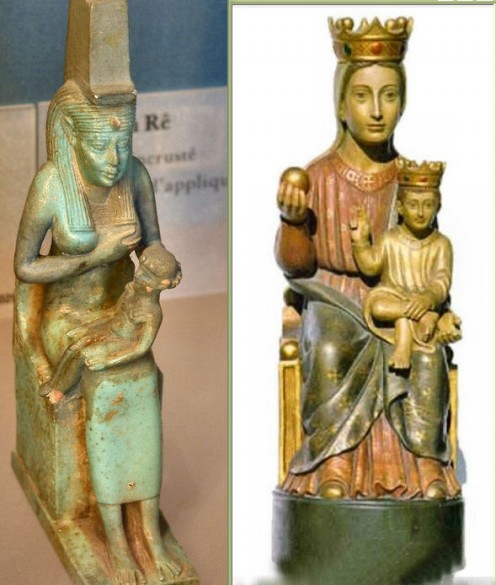
Just A Few Of The Books That Have Informed My Thinking
The Lost Gods of England ~ Brian Branston
Who Was Jesus? ~ Don Cupitt and Peter Armstrong
The God Delusion ~ Richard Dawkins
Jesus: The Evidence ~ Ian Wilson
Exodus to Arthur: Catastrophic Encounters with Comets ~ Mike Baillie
Thoughts and Conclusions
Many documentaries and books, debates and discussions, and much time spent in thought, have resulted in these conclusions.
This is a huge topic, No doubt I have forgotten some issues, and omitted some points. Perhaps they will show up, later, in edits or in comments.
Although almost all religions, and aspects of religious belief, intrigue me, like most other people, I am most comfortable discussing what I am most familiar with. In my case, that would be Christianity.
I have added some interesting and relevant quotes and comments, at the end of this item.
I Have written a number of articles, published on Hub Pages, relating to various aspects of religion. All are related to the ideas and issues mentioned in this hub. Links to these items are at the end of the piece.
I apologise for the length of this article.
Some Books
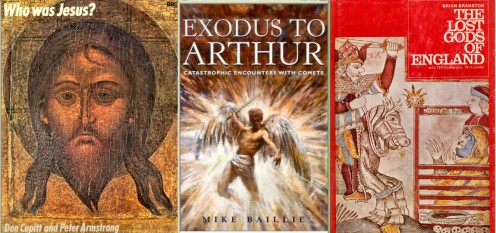

Lewis Wolpert
Lewis Wolpert - 'Impossible Things'
Quote: "As Lewis Wolpert sees it ......... We exceed all other animals in our capacity to believe things for which there is no rational evidence — a category that, in Wolpert’s reckoning, includes all the world’s religions, and every species of paranormal and supernatural belief ...."
John Carey, reviewing Lewis Wolpert's 'Six Impossible Things Before Breakfast: The Evolutionary Origins of Belief '
The title relates to the White Queen (in Lewis Carroll's 'Alice Through the Looking Glass') who practised believing unbelievable things and "sometimes .. believed as many as six impossible things before breakfast.”
From 'The Sunday Times' ~ March 19, 2006
See: http://entertainment.timesonline.co.uk/tol/arts_and_entertainment/books/non-fiction/article741335.ece

'Evolved Credulity'
Quote: 'The human brain is hard-wired to be susceptible to supernatural beliefs as a result of tens of thousands of years of evolution ... Religion and other forms of magical thinking continue to thrive, in spite of a lack of evidence and the advance of science, because people are naturally biased to accept a role for the irrational in their daily lives, according to Bruce Hood, Professor of Experimental Psychology at the University of Bristol.'
Quote continues: 'This evolved credulity suggests that it will be impossible to root out belief in ideas such as creationism and paranormal phenomena, even though they have been refuted by evidence and are held as a matter of faith alone.'
Mark Henderson, Science Editor ~ The Times ~ Times Online ~ September 4, 2006
Is It Any More Logical To Believe In Angels Rather than Fairies?

Hard-Wired To Believe
Quote: 'Humans are programmed to believe in God because it gives them a better chance of survival, researchers claim. ....... The findings of Bruce Hood, professor of developmental psychology at Bristol University, suggest that magical and supernatural beliefs are hardwired into our brains from birth, and that religions are therefore tapping into a powerful psychological force.'
Arthur Martin ~ Daily Mail ~ 7th September 2009
Read more: http://www.dailymail.co.uk/news/article-1211511/Why-born-believe-God-Its-wired-brain-says-psychologist.html#ixzz1UUjelnG7
Programmed to Believe
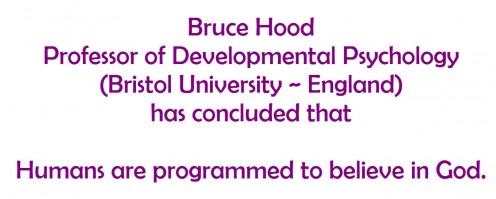
'Supernatural Beliefs'
Quote:
'ATHEISM really may be fighting against nature: humans have been hardwired by evolution to believe in God, scientists have suggested. ..... They suggest that during evolution groups of humans with religious tendencies began to benefit from their beliefs .....
'The findings challenge campaigners against organised religion, such as Richard Dawkins ..... He has long argued that religious beliefs result from poor education and childhood “indoctrination”.
'Bruce Hood, professor of developmental psychology at Bristol University, believes the picture is more complex. “Our research shows children have a natural, intuitive way of reasoning that leads them to all kinds of supernatural beliefs .... As they grow up they overlay these beliefs with more rational approaches, but the tendency to illogical supernatural beliefs remains as religion” .'
Jonathan Leake and Andrew Sniderman ~ From The Sunday Times ~ Times Online September 6, 2009
See: http://www.timesonline.co.uk/tol/comment/faith/article6823229.ece
Rational?
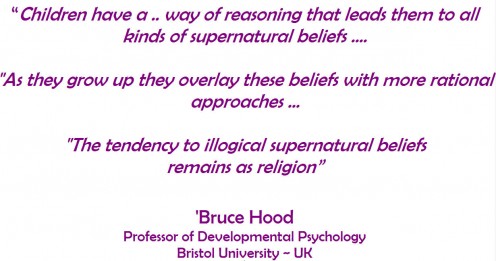
Conundrum: God a Delusion?
Quote:
'Richard Dawkins argues that God is a delusion. But .. isn't 'evangelical atheism' an article of faith in itself?
'Here’s a conundrum, of sorts, for evangelical atheists. Richard Dawkins has ... written a book ... against the existence of a divine being — called The God Delusion.
'As a scientist ... Dawkins is canny enough to know that, by the lights of his own methodology, it is impossible to state with certainty that there is no God.
So he quietly concedes, early on, that God is “improbable”.
'Yet the rest of the book burns with a fervent faith that God is a childish construct of our imaginations; that He never existed and was a delusion.'
*
Rod Liddle ~ From The Sunday Times ~ Times Online ~ October 8, 2006
See: http://entertainment.timesonline.co.uk/tol/arts_and_entertainment/article659793.ece

Christopher Hitchens vs Tony Blair Debate: Is Religion A Force For Good In The World?
Steven Pinker and Rebecca Goldstein
Sam Harris
What Do You Think About the Origins of Belief In God?
What Do You Think About the Origins of Belief In God?
Some of My Related Hubs
- If Jesus Were Proven to be Son of God / God Incarnate, Would Atheists Become Christians?
- Evolution and Creationism - My Take On Them and How I Arrived Here
- Evolution - Could the Creationists Have Got It Right ??!!
- Evolution - Creationists Right and Darwin Wrong ??!!
- Evolution - The Human Difference ~ Chimps and Men (and Women)
- Brilliant Venus - Goddess and Planet
- Lucifer - Devil, or King, or Morning Star, or Fallen Bible Angel, or Something Else?
- Easter Miscellany
- Would You Expect to Find 'Swords' in the Gospels of the Bible - New Testament?
- A Story of Palm Sunday, Easter Week and Insurrection!
- 'The Jesus Dynasty' by James D Tabor
- Chaucer, The Physicians Tale and the Bible
- Genghis (Chingis) Khan ~ and The Bible
- 'God is Love' by Percy Dearmer ~ Analysis of a Popular Hymn
- The-Execution-of-the-Wood-Gatherer-in-Numbers-15-Old-Testame
- The Destruction of the Babies and Children of Amalek ~ The Slaughter of the Amalekites
- QUOTE: "How could the Earth, and all Creation, be so Beautiful, without a Creator?"
- 'Top Ten Atheist Inconsistencies' Examined




















